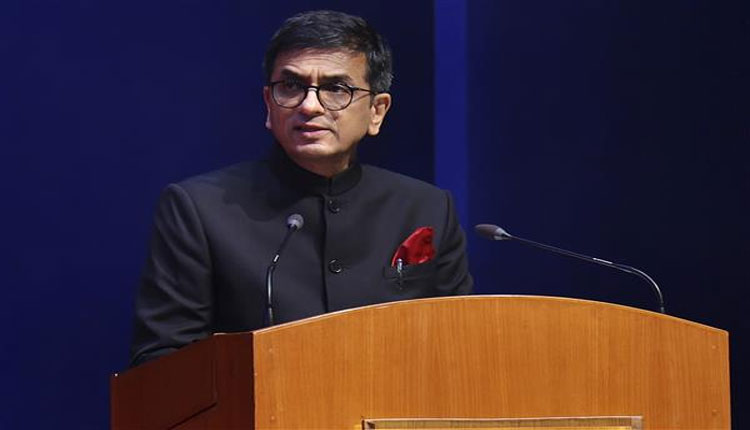New Delhi: In a thought-provoking conversation about freedom of speech, Chief Justice of India (CJI) DY Chandracud voiced concerns about the dangers of expression rights. During a talk on “Unity within the Constitution: Working Towards an Inclusive Society” at the Kerala High Court on Constitution Day, Chandracud emphasized how societal disparities could empower the influential to silence marginalized perspectives without speech oversight.
Chandrachud emphasized how power dynamics play out in society by stating that individuals with wealth and influence can control conversations and suppress the voices of those with power and resources This control over public discourse can lead to harmful imbalances in societies where there are significant disparities in wealth and opportunities.
Going further into the topic at hand, the ex-chief justice expressed that in communities where there is inequality present, the individuals holding positions of authority might exploit their freedom of speech to promote damaging narratives that undermine the well-being of those who are less privileged. Without oversight, freedom of speech could be used as a means to validate beliefs, silence opposing views, and perpetuate existing societal disparities.
Referring to the Constitution of India as a guiding principle, Chandrachud highlighted that although it ensures freedom of speech and expression is essential to our democracy, it does come with limitations. He pointed out that without measures in place to address narratives, unchecked speech could easily lead to the spread of hate speech and divisive narratives, which could undermine the core values of social equality. In his view, hate-filled narratives weaken bonds. Create barriers to achieving true equality by disproportionately affecting marginalized groups.
Chandrachud also mentioned the significance of considering inequalities when formulating policies on equality. He stated that merely treating all individuals equally without taking into account the disparities in access to resources and opportunities could inadvertently favor the class much. “In these instances,” he warned, pursuing equality might actually impede the freedom of those who’re less advantaged.”
Emphasizing the significance of brotherhood in democracies, Chandrachud highlighted its function as a factor that contributes to the welfare of every individual in society. He regarded brotherhood as a foundation for promoting progress and safeguarding democratic principles within varied communities, such as those in India.
In the discussions on speech and equality progression lately, there have been enlightening reflections from the ex-CJI highlighting the delicate balance needed to safeguard freedom of speech without allowing it to be misused by those in power for exploitative purposes.



Comments are closed.